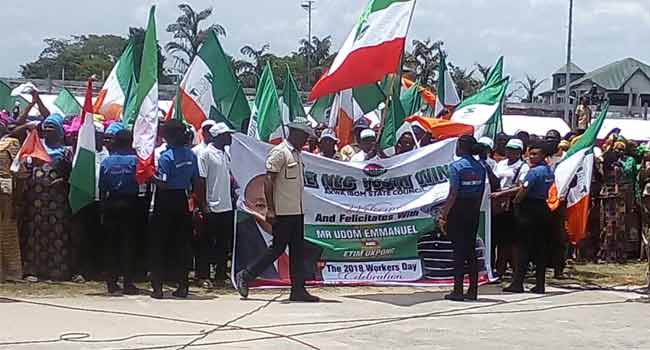By Wisdom Deji-Folutile
May 1 is nationally—and internationally—recognised as Workers’ Day in Nigeria (or Labour Day in some Western countries). To many, Workers’ Day is simply a long weekend, where people go for short vacations, rest from a busy work schedule, or attend recreational events. Others may recognise Workers’ Day in part for its significance to labour stakeholders. For instance, every Workers’ Day, is commemorative of the President of the Nigeria Labour Congress to address workers.
But very few people truly understand the history behind the national holiday.
Early Origins of Workers’ Day
Though it is believed by many that the international day stemmed, at least in part, from an ancient European spring festival, the most modernist source of Workers’ Day (or Labour Day) can be traced back to organised efforts of socialist and communist groups seeking a celebration to honour working-class citizens.
Another foundational landmark of the commemorative event was the rise of industrialisation in 19th-century America. According to historic sources, workers were at the time subject to inhumane work hours, with some working for as long as 15 hours on a daily basis.
Stonemasons and other artisans in Australia had in the mid-19th century also undertaken widespread “strikes”—mass stoppages—to protest work hours.
Poor working environment, abysmal wages, and inexistent benefits also earmarked the early industrial age.
In a bid to stop the oppression and exploitation industrialists subjected them to, workers had on May 1, 1886, raised their voices in a strike action protest, forming a trade union.
The protests eventually spiralled into violent demonstrations, in which many were given life (and death) sentences.
READ ALSO: BREAKING: Organised Labour seeks review of retirement age for public servants
By 1889, the International Socialist Conference declared that May 1 would be an international holiday for labour. And about 15 years later, the holiday was promoted by the International Workers’ Association to commemorate the slaughter of protesting labourers who had been killed in the
Specifically, the holiday was first promoted by an International Workers’ Association in 1904 to commemorate the slaughter of protesting labourers in the Haymarket Riot.
The Haymarket Riot, also remembered as the Haymarket Affair, was a violent confrontation between police and labour protesters in Chicago on May 4, 1886. As such, it became the basis for reference for associations protesting the poor working situations and compensation of workers.
Although there are conflicting reports on when Labour Day—as it is often called—was established, by the late 1880s, the majority of the USA already recognised it as an official public holiday.
Workers’ Day in Nigeria
International Workers’ Day is now observed as a national holiday across the globe.
Workers’ Day was first recognised as a public holiday in Nigeria in 1980 by the People Redemption Party of Kano State. It officially became a National Holiday on May 1st 1981 and has been celebrated on this date ever since.
The day is often marked by speeches, marches, and rallies organized by trade unions, civil societies, and workers’ organizations across the country. The event represents a moment for workers to show solidarity, demand improved working conditions and better wages, and celebrate their achievements.
Nigeria, just like the over 140 nations that observe the holiday, has its own history of protests and unions.
For instance, in June 1945, the Nigerian workers, led by the Nigerian Labor Congress, organized a nationwide strike, demanding improved working conditions, better wages, and the right to form labour unions.
A coalition of workers known as the Joint Executive of Government Technical Workers demanded an increased minimum wage on March 22, 1945, which the government denied on May 2. In response, the workers issued a statement that should government not grant their demands by “Thursday, June 21, 1945, the workers of Nigeria shall proceed to seek their own remedy with due regard to law and order on the one hand and starvation on the other”. A meeting between the government and labour leaders on May 30 yielded no recourse, despite efforts by the government to stay the storm (including a slight salary increase, which was rejected).
The strike began on June 22 and is historically remembered to have involved over 200,000 workers and seventeen labour unions.
Lasting for over 40 days, paralysed the country’s economy and led to massive losses for the colonial government. However, the colonial authorities eventually agreed to the workers’ demands.
Another good example of workers’ agitation for their rights is that of the Academic Staff Union of Universities (ASUU). ASUU, a most infamous example, has embarked on strike action 16 times in the last 23 years.
But even though frequent strike action in Nigeria is notoriously recognised and well-documented, the gears of change turn ever so slightly in the West African nation.





















